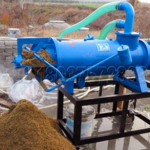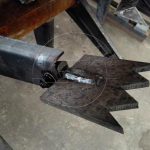Aerobic composting technology is a commonly used method for the treatment of livestock and poultry manure in countries around the world. After composting, the fertilizer produced is a decomposed high-efficiency organic fertilizer. Studies have shown that moisture, temperature and pH all affect the speed of decomposing cow dung and its fertilizer efficiency. The researchers believe that adding a certain amount of bacterial agent to cow dung can speed up the composting process and shorten the composting cycle. And the cow dung has better composting effect when adding corn stalk and microbial decomposing agent at the same time.
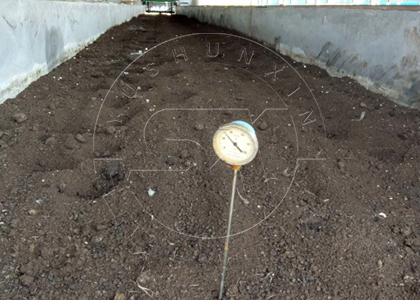
What is the Optimum Temperature for Composting?
Temperature is the most significant factor affecting microbial activity and plays a decisive role in the reaction rate of composting. Too low or too high temperatures can affect composting. If the temperature is too low, the eggs, pathogenic bacteria, parasites, weed seeds, etc. in the pile cannot be killed. Excessive temperature will inhibit the action of aerobic bacteria and make microorganisms inactive. It is generally believed that the optimum range of microbial activity is 35-50°C. Studies have shown that when aerobic composting is carried out, the composting effect is the best when the temperature is between 45 °C and 55 °C.
So what to do when the temperature can’t reach it? Shunxin technicians believe that when composting, adding sugar or brown sugar water to the compost can effectively speed up the temperature rise of the compost. Of course, it needs to be added in a certain proportion to the most suitable temperature. When the temperature exceeds 60 °C, it is necessary to use a turning machine to turn the pile.
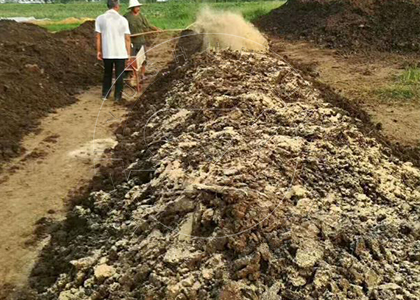
What is the Most Beneficial Ratio of Cow Dung to Straw?
As an organic solid waste, cow dung and straw are rich in nutrients such as nitrogen, phosphorus and potassium required by crops. The moisture content of fresh cow dung is generally around 80%. The moisture content of the fermentation material is required to be between 50% and 60%. Experiments by Chinese scientists have shown that the C/N condition can only be met when cow dung and straw are mixed in a ratio of 5:2.
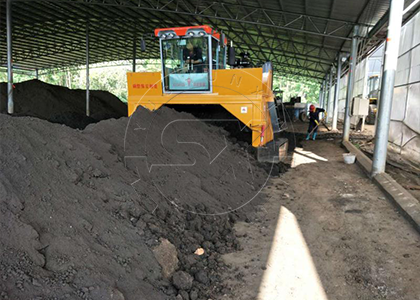
Conclusion
Appropriate temperature and proper moisture conditions are crucial for cow dung fermentation. Not only that, but the flipper also plays an important role. This is because it is impossible to simply rely on the material to ferment by itself. Shunxin Compost Turner can help speed up your composting process, welcome to consult!
Error: Contact form not found.



